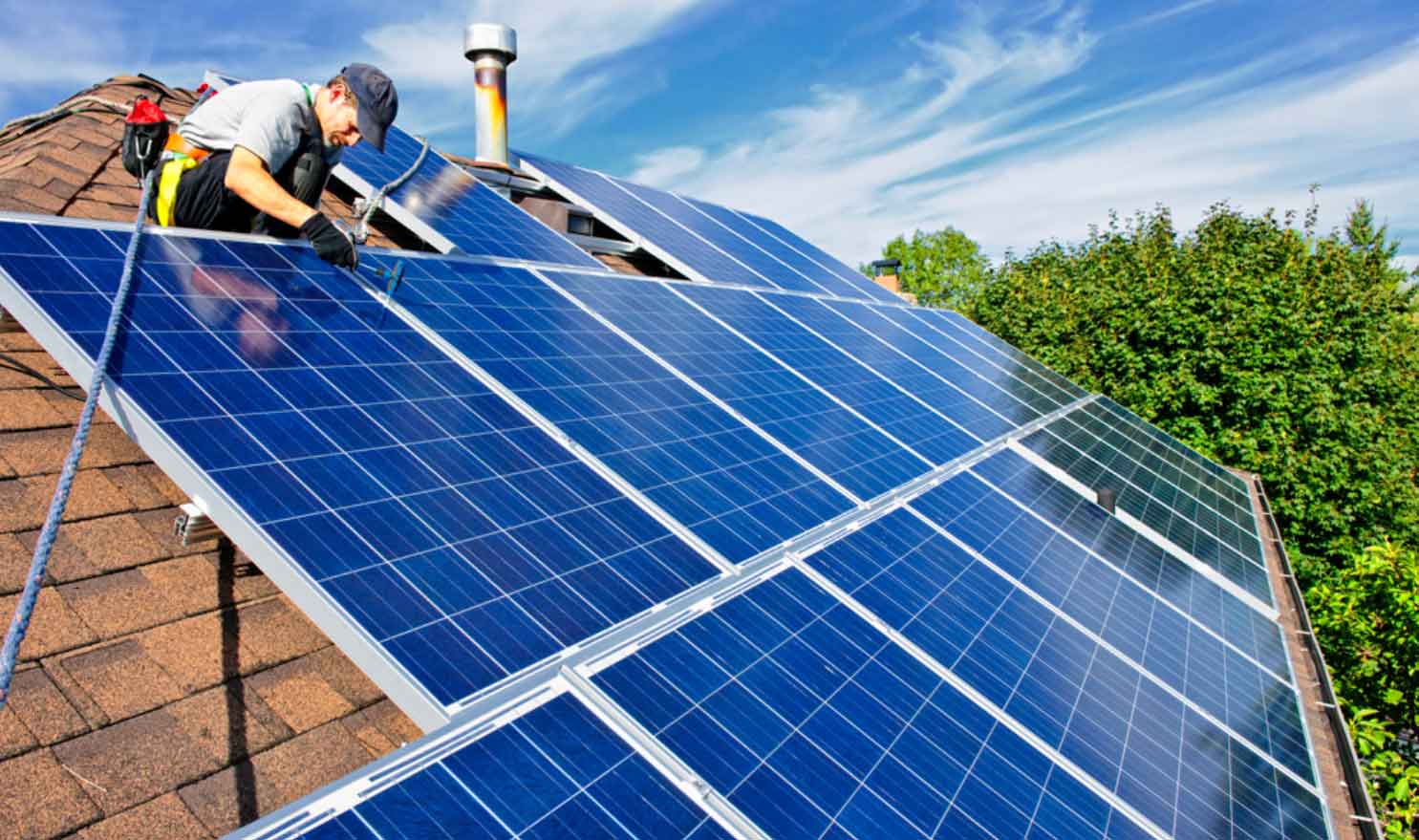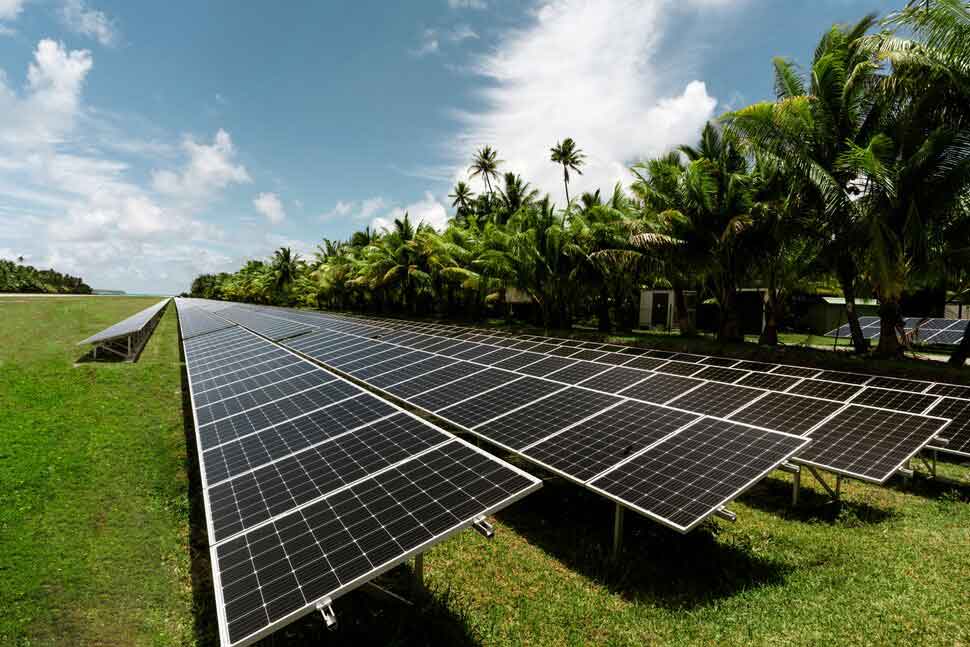Chapter 1: Finding the Best Solar Panel for House

Choosing the best solar panel for your house involves considering several key factors:
- Efficiency: This refers to how well best solar panel converts sunlight into electricity. Higher efficiency panels are generally more expensive, but they can produce more power in a smaller area.
- Quality and Reliability: Look for panels from reputable manufacturers with a good track record of performance and durability. It’s also wise to check warranties, as they can be an indicator of the panel’s quality.
- Type of Solar Panel: There are mainly three types of best solar panel – monocrystalline, polycrystalline, and thin-film. Each has its own pros and cons. Monocrystalline panels are typically more efficient and expensive, polycrystalline panels are less expensive but slightly less efficient, and thin-film panels are the least expensive and less efficient but are flexible.
- Size and Wattage: The physical size of the panel and its wattage will determine how much power you can expect. You need to balance your energy needs with the available space on your roof.
- Cost: Solar panels can be a significant investment. While more expensive panels might offer higher efficiency or better warranties, sometimes a less expensive panel with slightly lower efficiency might offer better value for your needs.
- Energy Needs: Assess your household’s energy consumption to determine how many panels you’ll need. A professional installer can help calculate this based on your electricity bills.
- Local Climate and Location: The effectiveness of best solar panel can also depend on your geographic location and local climate. For instance, some panels perform better in hotter climates.
- Incentives and Rebates: Research local, state, and federal incentives or rebates for best solar panel installation, which can significantly offset the initial investment cost.
- Installation and Maintenance: Consider the installation process and the ease of maintenance. Professional installation is recommended, and some panels might require more maintenance than others.
- Solar Panel Certification: Ensure the panels meet industry standards and certifications, which can be an indicator of their quality and reliability.
- Future Expansion: If you think you might want to add more panels later, consider how easily you can expand best solar panel system.
Before making a decision, it’s advisable to get quotes from several reputable best solar panel providers and installers. They can offer specific recommendations based on your home’s location, roof size, and your energy needs. Additionally, customer reviews and expert ratings can be very helpful in assessing the performance and reliability of best solar panel brands.
Chapter 2: The Comprehensive Guide to the Best Solar Panel
Creating a comprehensive guide to the best solar panel involves several key aspects to consider. Here’s a breakdown to help you understand what to look for when choosing the best solar panel for your needs:
- Types of Solar Panels:
- Monocrystalline Solar Panels: Known for high efficiency and sleek design. They are more expensive but are ideal for areas with limited space.
- Polycrystalline Solar Panels: Less efficient than monocrystalline, but also less expensive. Suitable for larger spaces.
- Thin-Film Solar Panels: These are the least efficient and cheapest. They work well in large, open areas and are less affected by high temperatures.
- Efficiency: This refers to how well a panel converts sunlight into electricity. Higher efficiency means more power output per square foot, making high-efficiency panels ideal for smaller spaces.
- Power Output and Size: Consider the wattage of each panel. High-wattage panels produce more electricity and may reduce the number of panels you need.
- Temperature Coefficient: This measures how much the panel’s performance is affected by high temperatures. A lower coefficient means better performance in hot climates.
- Durability and Warranties: Look for panels with robust construction and long warranties. A standard product warranty is around 10-12 years, while performance warranties can be 25 years or more.
- Cost: Balance the initial investment with long-term savings. More efficient panels might be more expensive but can provide more savings over time.
- Brand Reputation and Reviews: Research brands for their reliability, customer service, and real-world performance.
- Certifications: Panels certified by international standards like IEC or UL indicate quality and safety.
- Local Climate and Installation Conditions: Choose panels suitable for your local weather conditions. For example, panels with a high temperature coefficient are better in hot climates.
- Solar Incentives: Look into local incentives, rebates, and tax credits which can significantly offset the initial investment.
Some top-rated brands to consider include Qcells, Silfab Solar, JA Solar, Jinko Solar, Canadian Solar, Longi, Panasonic, REC, Maxeon, SEG Solar, Hanwha Q Cells, REC Alpha Pure, and SunPower A-Series. Each of these brands has its own unique strengths in terms of efficiency, cost, durability, and warranty conditions.
Lastly, remember that the installation company plays a crucial role. Ensure you select a reputable and experienced installer.
For more detailed information and updates, it’s advisable to refer to dedicated resources like VoltCoffer manufacturer, or other specialized best solar panel.
Chapter 3: The Best Solar Panel for Maximum Efficiency

When focusing on maximum efficiency in best solar panel, a few brands and models stand out. Efficiency in best solar panel is a measure of how effectively they convert sunlight into electricity. The higher the efficiency, the more power you can generate per square foot of panel. Here are some of the most efficient best solar panel as of 2023:
- SunPower A-Series Panels: These are known for having some of the highest efficiency levels, reaching up to 22.8%. SunPower’s panels are ideal for maximizing solar output even with limited roof space.
- Maxeon: A top brand in terms of efficiency, Maxeon panels are known for premium quality. They come with an industry-leading 40-year performance and product warranty, but they are also among the most expensive.
- Canadian Solar: Offers panels with efficiency up to 22.8%, combined with a balance of cost and durability.
- Jinko Solar: Notable for their efficiency, with models offering up to 22.53% efficiency. They also provide a good balance of cost, warranty, and performance.
- Qcells: Although not the absolute highest in efficiency, Qcells panels are highly regarded for their balance of efficiency, cost, and quality. They offer models with efficiencies up to 22%.
These panels are ideal for applications where space is limited, and maximum power output is desired. However, it’s important to consider that high-efficiency panels often come with a higher price tag. You’ll need to balance the cost with the potential energy production benefits, depending on your specific energy needs and the space available for best solar panel.
For the most up-to-date information and specific model details, it’s advisable to consult resources like best solar panel and manufacturer websites, as the technology and offerings can change rapidly.
Chapter 4: Discovering the Best Solar Panel for Sustainability
Selecting the best solar panel for sustainability involves considering factors like the manufacturing process, materials used, energy payback time, and the company’s overall commitment to environmental stewardship. Here are some considerations for finding best solar panel:
- Eco-Friendly Manufacturing: Look for companies that use environmentally responsible manufacturing processes. This includes reducing water usage, minimizing waste, and lowering carbon emissions during production.
- Energy Payback Time: This is the time it takes for best solar panel to generate the amount of energy that was used to produce it. Panels with a shorter energy payback time are generally more sustainable.
- Recyclable Materials: Best solar panel made with more recyclable materials than others. Panels that can be easily recycled at the end of their lifespan reduce environmental impact.
- Durability and Longevity: Panels that last longer reduce the need for frequent replacements, thereby conserving resources. A longer lifespan also means more energy produced over time relative to the energy used in manufacturing.
- Corporate Sustainability Practices: Research the best solar panel manufacturers to understand their commitment to sustainability. This can include their use of renewable energy in production, efforts in recycling old panels, and overall corporate social responsibility initiatives.
- Certifications: Look for certifications like Green Seal or Energy Star, which indicate a product meets certain environmental performance criteria.
Brands known for their focus on sustainability include:
- SunPower: Known for high-efficiency panels and a commitment to sustainability in manufacturing and recycling programs.
- First Solar: Specializes in thin-film solar panels and has a strong focus on sustainable production practices.
- REC Solar: Noted for its low carbon footprint and energy payback time.
It’s essential to conduct current research, as the field of solar technology is rapidly advancing, and companies are continuously improving their sustainability practices. Checking the latest information from resources like VoltCoffer manufacturer’ websites can provide up-to-date insights on their sustainability efforts and product offerings.
Chapter 5: Reviews of the Best Solar Panel on the Market
The best solar panel on the market for 2023 are known for their efficiency, reliability, and overall value. Here’s a summary of the top-rated brands and what makes them stand out:
- SunPower (Maxeon): Known for the most efficient panels available for homes, SunPower’s Maxeon panels stand out with an efficiency rating of 22.8% and a power output of up to 440W. They are slightly more expensive but offer industry-leading warranty coverage of 40 years.
- Qcells: A consumer favorite, Qcells panels are competitively priced and highly efficient, performing well in high temperatures. They have an efficiency rating around 20.9% and a degradation rate of 0.5% per year, with a 25-year warranty. They are around $3.00 per watt, making them a good value choice.
- Trina Solar: Trina Solar is recognized for providing the best value. Their Vertex S series has an efficiency of 21.1%, with a good balance between cost and performance.
- REC Solar: Most reliable in the lineup, REC Solar panels are notable for their high performance in warm climates. The Alpha Pure-R series boasts a temperature coefficient of -0.24%/°C and an efficiency of 22.3%.
- Panasonic: Best for tight roof spaces, Panasonic panels are compact and have high efficiency. They also have a good temperature coefficient of -0.26%/°C.
- Maxeon Solar Technologies: Known for offering the best warranty, Maxeon panels guarantee 88.25% of their original output even at year 40, providing a robust long-term performance promise.
- Jinko Solar: Offers the best performance per penny, with over 22% efficiency for their high-quality panels and an average cost of $2.55/W.
- Canadian Solar: Offers panels with efficiency up to 22.8% and a 30-year warranty, combining cost, durability, and efficiency.
- Silfab Solar, JA Solar, and Longi: Also featured as top brands, these companies are recognized for their quality and investment in the market, with each offering distinct advantages in terms of module quality, warranty, and financial stability.
Remember, the best solar panel for your home depends on factors like roof space, local climate, and your specific energy needs. It’s always advisable to compare quotes and consult with a professional installer to find the most suitable option for your situation.
